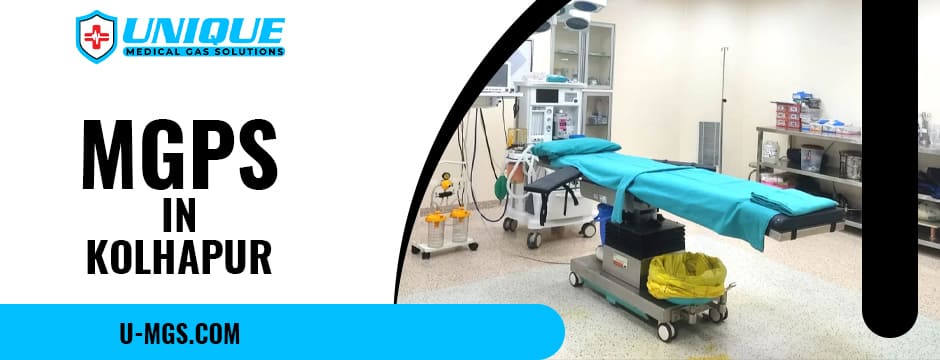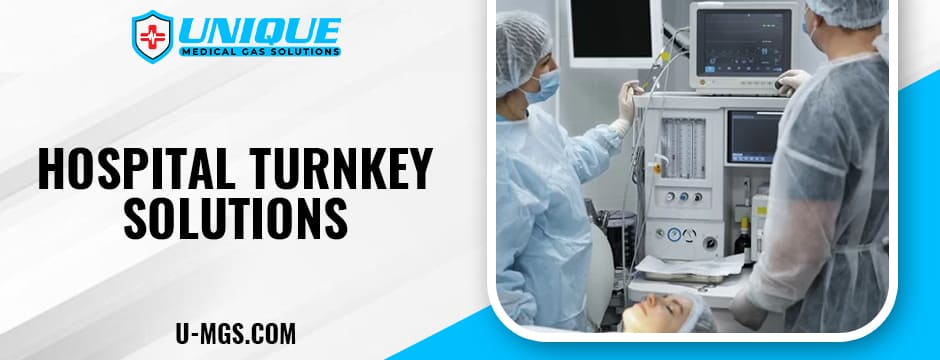In recent years, patient safety has become a focal point for healthcare institutions worldwide. With an increasing emphasis on quality care, ensuring the safety of patients is of paramount importance to healthcare providers. In Kolhapur, the Medical Gas Pipeline System (MGPS) plays a pivotal role in safeguarding patients in hospitals and clinics. MGPS refers to the integrated system that delivers medical gases, such as oxygen, nitrous oxide, and medical air, to various sections of healthcare facilities, ensuring the proper and safe administration of life-saving gases. A well-designed and maintained MGPS in Kolhapur contributes directly to patient safety, helping healthcare professionals provide optimal care while minimizing risks.
It is crucial to reduce the likelihood of medical errors that can occur due to incorrect gas administration or faulty equipment. By providing a constant and reliable supply of gases, hospitals can ensure patients receive the correct treatment and therapies. This system also minimizes the chances of contamination, cross-contamination, and leaks that can harm patients. This blog will explore how MGPS plays an integral role in patient safety in healthcare settings, specifically in Kolhapur.
Key Benefits of MGPS in Kolhapur in Enhancing Patient Safety
Reliability and Continuity of Care
The most fundamental advantage of having a robust MGPS in healthcare institutions is the uninterrupted and continuous supply of gases. Traditional gas cylinder systems require frequent manual checks and replacements, which can sometimes lead to delays.
With an MGPS, medical gases are automatically delivered, ensuring that they are always available. In critical care environments, such as intensive care units (ICUs) or during surgeries, where the uninterrupted supply of oxygen is essential, the reliability of MGPS ensures that patients are not put at risk due to a lack of gas.

Minimizing Contamination Risks
In medical gas delivery, contamination can be a serious issue. If gas cylinders are not stored correctly or if there is a leak in the system, harmful substances can contaminate the gas supply. This can result in dangerous reactions within the patient’s body or pose a health risk to hospital staff.
MGPS systems are designed with multiple layers of safety features, such as check valves, alarms, and purification systems, to prevent contamination. These measures ensure that the gases being administered to patients are of the highest quality and free from contaminants.
Leak Detection and Maintenance
MGPS systems are equipped with advanced monitoring technology that can detect even the smallest leaks in the pipelines. These systems have built-in pressure regulators and sensors that monitor the pressure and flow of gases.
If there is any irregularity, such as a drop in pressure or a leak, alarms are triggered to alert the hospital staff. Immediate action can be taken to prevent any potential harm to patients. Regular maintenance checks and testing of the MGPS system further enhance the overall safety by ensuring that it continues to function optimally.
Prevention of Gas Mismanagement
Mismanagement of medical gases is another significant concern in healthcare institutions. Incorrect gas pressures or the delivery of wrong gases can have severe consequences for patients. The design of MGPS in Kolhapur system prevents this by using colour-coded and standardized gas outlets to make it easy to differentiate between various gases like oxygen, nitrous oxide, or medical air. Each outlet is clearly labelled and designed to prevent accidental connections between incompatible gases. This system ensures that healthcare providers can quickly identify the correct gas to administer, reducing the chances of errors during critical moments.
Improved Efficiency in Healthcare Operations with MGPS in Kolhapur
MGPS not only improves patient safety but also enhances the operational efficiency of healthcare institutions. By centralizing the gas delivery system, hospitals can reduce the time spent by staff on managing gas cylinders.
The system is automated, requiring less human intervention, which allows medical staff to focus on providing care rather than worrying about the availability of gases. Additionally, it helps in better resource management by reducing the need for manual storage and transport of gas cylinders.
Role of MGPS in Enhancing Staff Safety
MGPS doesn’t only improve patient safety, but it also enhances the safety of hospital staff. Gas cylinder handling can be hazardous, especially in environments where large numbers of cylinders are used. Manual lifting and transportation of cylinders can cause accidents, such as back injuries or accidental leaks. Hospital turnkey solutions eliminate this risk by ensuring the gases are delivered through secure pipelines, reducing the need for physical handling of cylinders. This creates a safer working environment for healthcare workers, further supporting the overall safety of the institution.

Final thoughts
MGPS in Kolhapur has made a significant contribution to the safety of patients in healthcare institutions. By ensuring the uninterrupted, reliable, and safe supply of medical gases, these systems help hospitals maintain the highest standards of care. The system prevents errors related to gas mismanagement, contamination, and leaks while also enhancing the operational efficiency of healthcare institutions. The role of MGPS in patient and staff safety cannot be overstated, as it provides a safer and more efficient environment for both patients and healthcare professionals.For those interested in enhancing patient safety through advanced MGPS technology, Unique Medical Gas Solution offers reliable and state-of-the-art solutions for healthcare institutions looking to improve the safety and efficiency of their gas delivery systems.




No comment